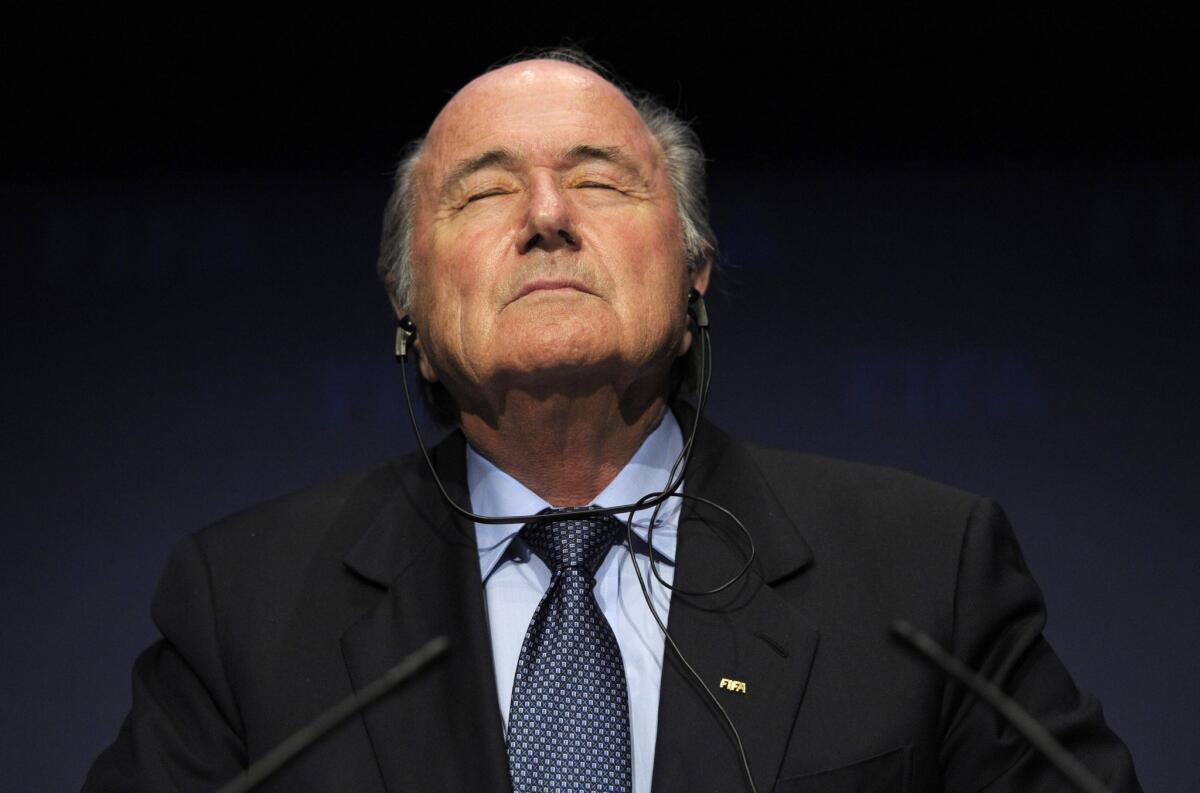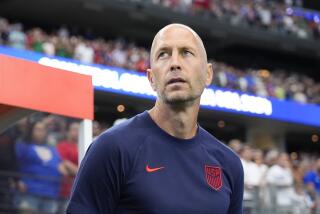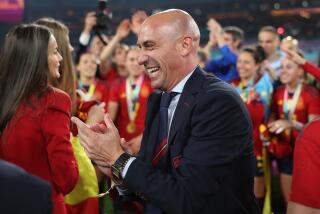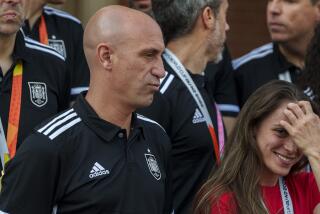A timeline on the FIFA scandal

A rundown of some of the notable events that led to Tuesday’s announcement that FIFA President Sepp Blatter will resign:
December 2010: FIFA, soccer’s governing body, awards Russia the 2018 World Cup and Qatar the 2022 World Cup.
June 2011: Former FIFA executive committee member Mohamed bin Hammam is found guilty of bribery and banned from international football activity for life by FIFA’s ethics committee.
July 2012: FIFA’s ethics committee appoints Michael Garcia, the former U.S. attorney for the Southern District of New York, to head an investigation into corruption allegations.
Nov. 2014: FIFA’s ethics committee chairman Hans-Joachim Eckert publishes a summary of Garcia’s report. Russia’s and Qatar’s hosting bids are essentially confirmed after Eckert finds wrongdoings associated with bids do not justify reopening the bidding process. Garcia calls the summary “erroneous.”
May 27, 2015: U.S. Atty. Gen. Loretta Lynch announces a lengthy investigation into FIFA that has uncovered decades of bribery totaling more than $150 million. Federal racketeering charges are unveiled against 14 people, including nine current and former FIFA executives; seven are arrested near the organization’s headquarters in Zurich, Switzerland. Officials are charged with buying and selling votes to deliver the 2010 World Cup to South Africa and soliciting kickbacks from sports marketers.
Swiss authorities seize documents from FIFA offices as part of a separate criminal investigation into the 2018 and 2022 World Cup bids. FIFA President Sepp Blatter, who is not named in either legal case, says: “Such misconduct has no place in football and we will ensure that those who engage in it are put out of the game.”
May 28:
A FIFA election in which Blatter, 79, is pitted against the candidate Prince Ali bin al Hussein of Jordan for the presidency, will go ahead as planned. “I can’t monitor everyone all of the time. If people want to do wrong, they will also try to hide it,” Blatter says.
British Prime Minister David Cameron calls on Blatter to step down. Russian President Vladimir Putin describes the criminal investigations as “yet another evident attempt to derail Mr. Blatter’s reelection” and says the U.S.-led arrests had an ulterior motive — to throw into question Russia’s 2018 World Cup.
South African Sports Minister Fikile Mbalula vehemently denies charges his government may have won the right to host the World Cup by paying at least $10 million in bribes. Mbalula accuses the U.S. of reaching “beyond its borders.”
May 29:
Blatter is elected to a fifth four-year term as FIFA president. “I take the responsibility to bring back FIFA,” Blatter says. Blatter outpolls rival, Ali 133-73 in the first round of voting. Ali withdraws from a mandated second round in which he was nearly certain to lose.
May 31:
Blatter suggests why the criminal investigations were launched. “The Americans were the candidates for the World Cup of 2022 and they lost,” Blatter says. “The English were the candidates for 2018 and they lost, so it was really with the English media and the American movement that came down.”
June 1:
FIFA announces that its secretary general, Jerome Valcke — Blatter’s top lieutenant — won’t attend the women’s World Cup in Canada. A few hours later, the New York Times reports federal authorities believe Valcke was behind the $10 million in bank transactions that are at the center of FIFA’s corruption scandal.
June 2:
Four days after his reelection, Blatter announces he will resign and calls for new elections to choose his successor. “This mandate does not seem to be supported by everybody in the world of football,” Blatter says at a hastily arranged news conference in Zurich. “FIFA needs a profound restructuring.”








